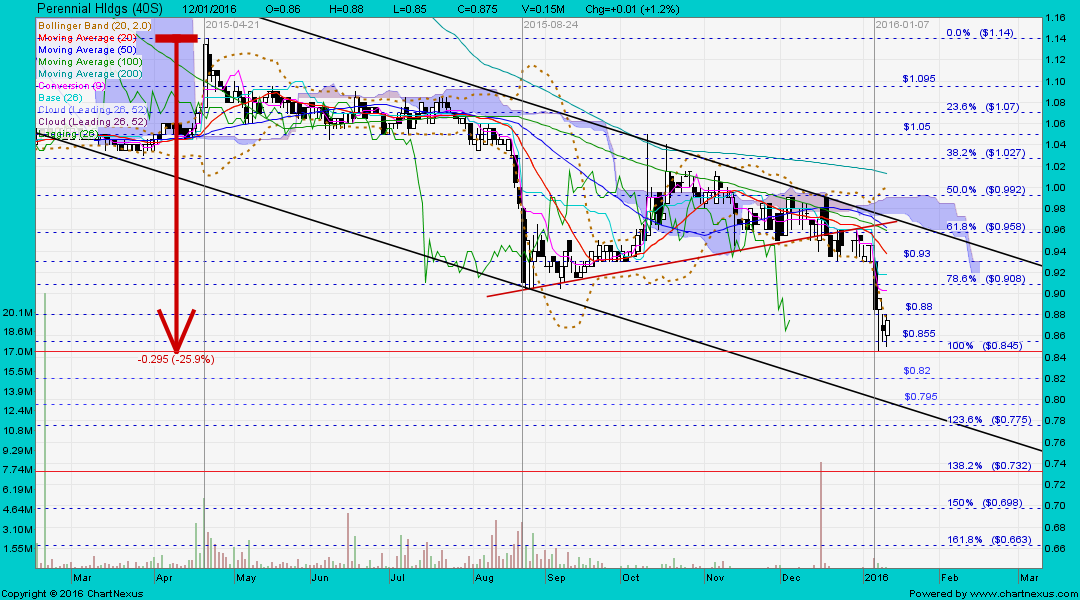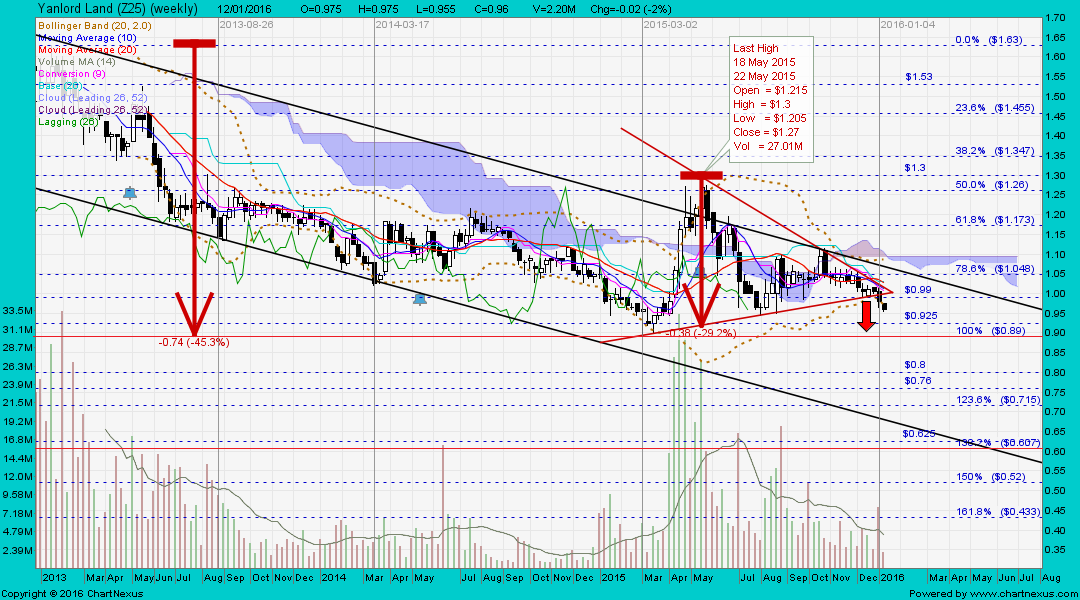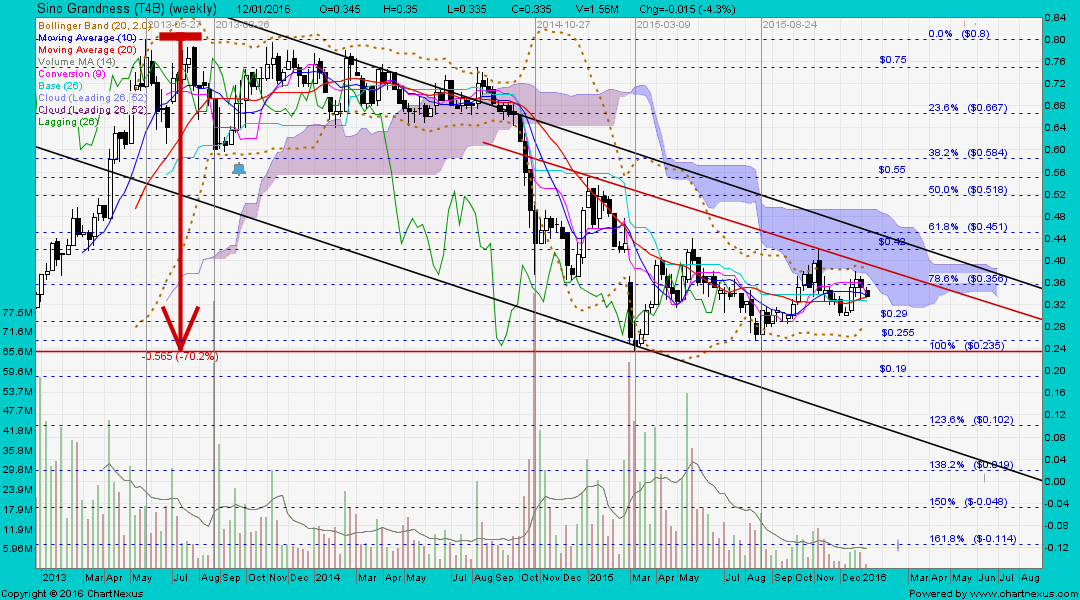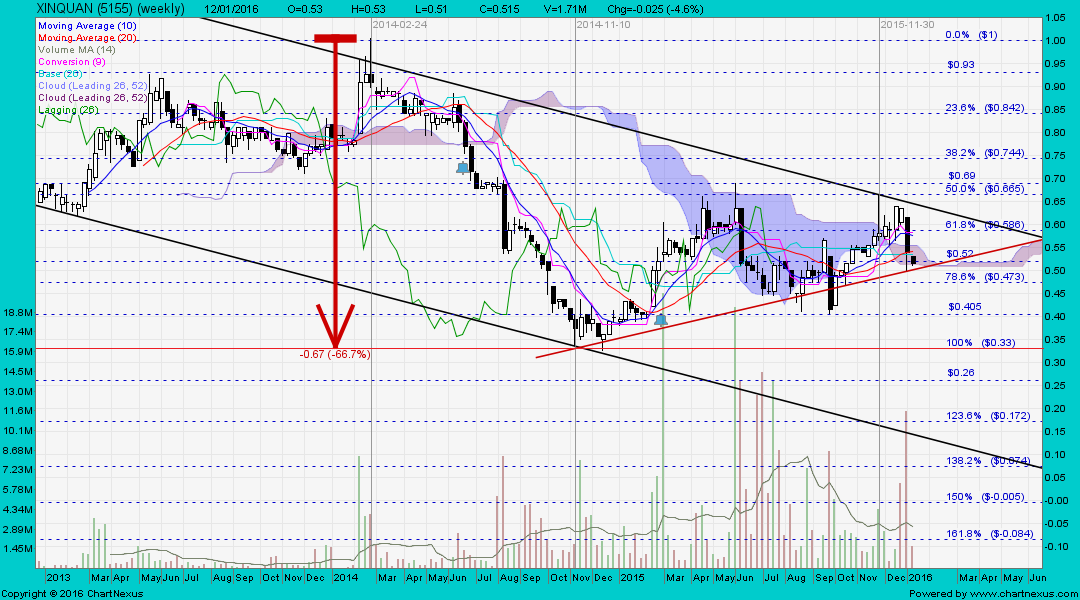Don't trust people so readily ~
oldman 毛贼蔣寇本是一家亲。 Say ‘no’ to China stocksS-Chips and China-based/China-related listed companies stocks are strictly meant for gambling purposes, nothing else. Play them when they're hot, do not cling onto them when the share price has already collapsed.
PREH, Yanlord, Sino Grandness and Xingquan: Chart Pattern ~ A Big Bull Trap


 Xingquan: The hollow story (Part 2/2)
Xingquan: The hollow story (Part 2/2) ~ 4 Jan 2016
Xingquan: The hollow story (Part 1/2) ~ 2 Jan 2016
Xingquan: Is the cash pile real? ~ 31 Dec 2015
Koon Yew Yin: Why am I buying Xingquan? ~ 30 Dec 2015
Xingquan Int'l Sports (5155.KL) ~
Company Official WebsiteLearning from Malaysian stock marketBy Elaine Tan reports from Kuala Lumpur
Tuesday, December 3, 2013, 08:38
When Xingquan International Sports Holdings Ltd sought a listing on Bursa Malaysia — the Malaysian stock exchange — it was welcomed with open arms.
The 2009 initial public offering of China’s fifth-largest outdoor sportswear manufacturer was the first by a foreign company after a concerted 16-month effort by the local Securities Commission and the stock exchange to internationalize Malaysia’s capital market.
The Fujian-based company’s July debut was followed closely by Multi Sports Holdings Ltd, a firm that designs, develops and makes shoe soles, which was listed in August. Three months later, sports shoe and sportswear manufacturer XiDeLang Holdings Ltd also had its IPO.
Hopes were high that the arrival of these Chinese companies would improve the efficiency of the Malaysian capital market, add depth and breadth to the exchange, and pave the way for local investors to access stocks from the world’s most dynamic economy. Bursa Malaysia, a latecomer to the game, would finally catch up with the likes of Singapore, New York and London in courting cross-border listings from the economic superpower.
Meanwhile, Chinese companies were able to access funds much faster than on home ground, where a massive backlog could delay listing aspirations and intensify competition for investment dollars.
Xingquan International said it had decided on a Bursa Malaysia listing because of the encouraging support from Malaysian authorities, and local financial institutions and funds.
“We explored several options back in 2008 and found the Malaysian market to be most suitable for us,” said Wu Qingquan, Xingquan International’s executive chairman and chief executive officer.
But the rosy picture has not panned out exactly as planned.
There are nine listed Chinese companies on the Malaysian exchange: Xingquan International, Multi Sports, XiDeLang, K-Star Sports Ltd and Maxwell International Holdings Bhd are involved in the design and manufacturing of shoes and sportswear; China Ouhua Winery Holdings Ltd produces and distributes wines; HB Global Ltd is a gourmet convenience food specialist; China Stationery Ltd manufactures plastic stationery products; and China Automobile Parts Holdings Ltd makes chassis components used in cars.
They made mostly modest debuts on Bursa Malaysia. Except for China Automobile Parts, which opened 18 percent higher than its IPO price, the others recorded opening price premiums of no more than 10 percent. XiDeLang and K-Star Sports even started below their retail offer prices.
“We had hoped for a better reception. Perhaps the investment community needs more time to understand our company and the market that we are in, and evaluate us differently from the rest,” said Wu at Xingquan International.
The companies have also lost considerable value since listing. At closing on Nov 26, their share prices were well below their IPO prices. Xingquan International and China Automobile Parts, for example, were trading at less than half of their IPO prices.
The dismal performance of the entire category has been largely blamed on negative perception and poor investor sentiment, precipitated by accounting scandals involving some Chinese companies listed in Singapore, Canada and the United States.
Some Chinese companies listed on the Singapore stock exchange, for instance, have been implicated in a series of financial irregularities and corporate governance failures. Meanwhile, in the US, investors have lost billions of dollars after the delisting of more than 100 Chinese companies from North American exchanges because of inconsistencies in their books.
HB Global’s slide to Practice Note 17 status, which indicates that a company is in financial distress, after its auditors made a disclaimer of opinion in the company’s audited accounts, has not done its fellow compatriots any favors either.
Fung Vun Ket from the Malaysian office of Anbound Research, an independent think tank in China, said another reason for the lack of interest in these stocks is due to their small market capitalization of below 300 million ringgit ($93 million).
“They’re not on the radars of local institutional investors, and the major players in the Malaysian stock market are the institutions. Small cap stocks typically attract retail investors but they prefer industries like property, banking and oil and gas,” Fung said.
Edmund Tham, head of research at Mercury Securities in Kuala Lumpur, can see another reason for their poor stock performance.
“The financial results of some of these Chinese companies have also not been so good,” he noted.
Troubled HB Global reported a 26.11 million ringgit net profit for the financial year ended 2012, representing a more than 76 percent decline from the previous year. Both China Ouhua Winery and K-Star Sports have gone from strong profit positions to losses within a year.
Companies like China Stationery and China Automobile Parts are in the black and reporting improvements in profit; yet they are trading well below their earnings per share.
The Chinese are understandably frustrated by what appears to be sweeping discrimination.
“Investors should not paint with broad strokes and assume that all Chinese companies are the same. China Stationery is a stock with strong fundamentals, yet to be recognized by investors,” said Chan Fung, China Stationery’s executive chairman.
Wu of Xingquan International echoed that view.
“There are also many good China-based companies listed in New York and Singapore. We hope the investment community in Malaysia will also be able to distinguish between good and not so good China-based counters to invest wisely.”
When contacted, Bursa Malaysia declined to comment on specific stock performance.
“At times, the stock price may not reflect the fundamental performance of a publicly listed company due to certain factors such as visibility among the investment community and the composition of the company’s investor base,” Bursa Malaysia said.
It advised the companies to undertake more active investor relations activities as well as direct engagement to keep investors informed, adding that the exchange is also constantly profiling its listed companies to the investing community.
“They can do more to reach out to investors,” agreed Fung from Anbound Research. “For example, they should make more announcements about their activities and operations in China on Bursa Malaysia.”
Fung added that the companies need to also strengthen their local presence.
“They do not have significant business, assets or investments (in Malaysia), which does not go down well with local investors. At the least, they should export their products here to create awareness,” Fung said.
Although rumors of delisting and going private have circulated, the Chinese appear to be in it for the long haul.
“We will maintain our listing,” said Wu. “The depressed stock prices of China-based companies are due to a perception issue, not just in the local market but also globally.”
Maxwell International has the same opinion. Its chief financial officer Tan Swee Song told StarBizWeek they will not give up on attracting investors.
For now, the icy treatment by Malaysian investors appears not to have put a dampener on Chinese companies seeking listing in Malaysia. Bamboo flooring company Kanger International Bhd is on track to becoming the 10th Chinese company to go public on Bursa Malaysia.
“The Malaysian market is still attractive,” said Mercury Securities’ Tham.